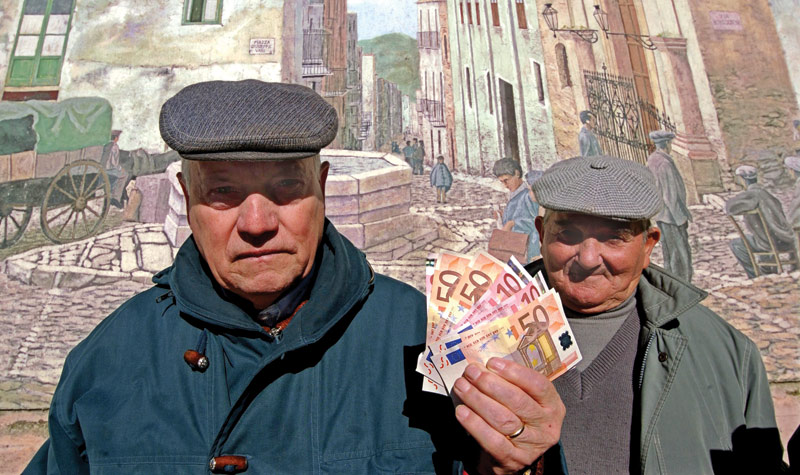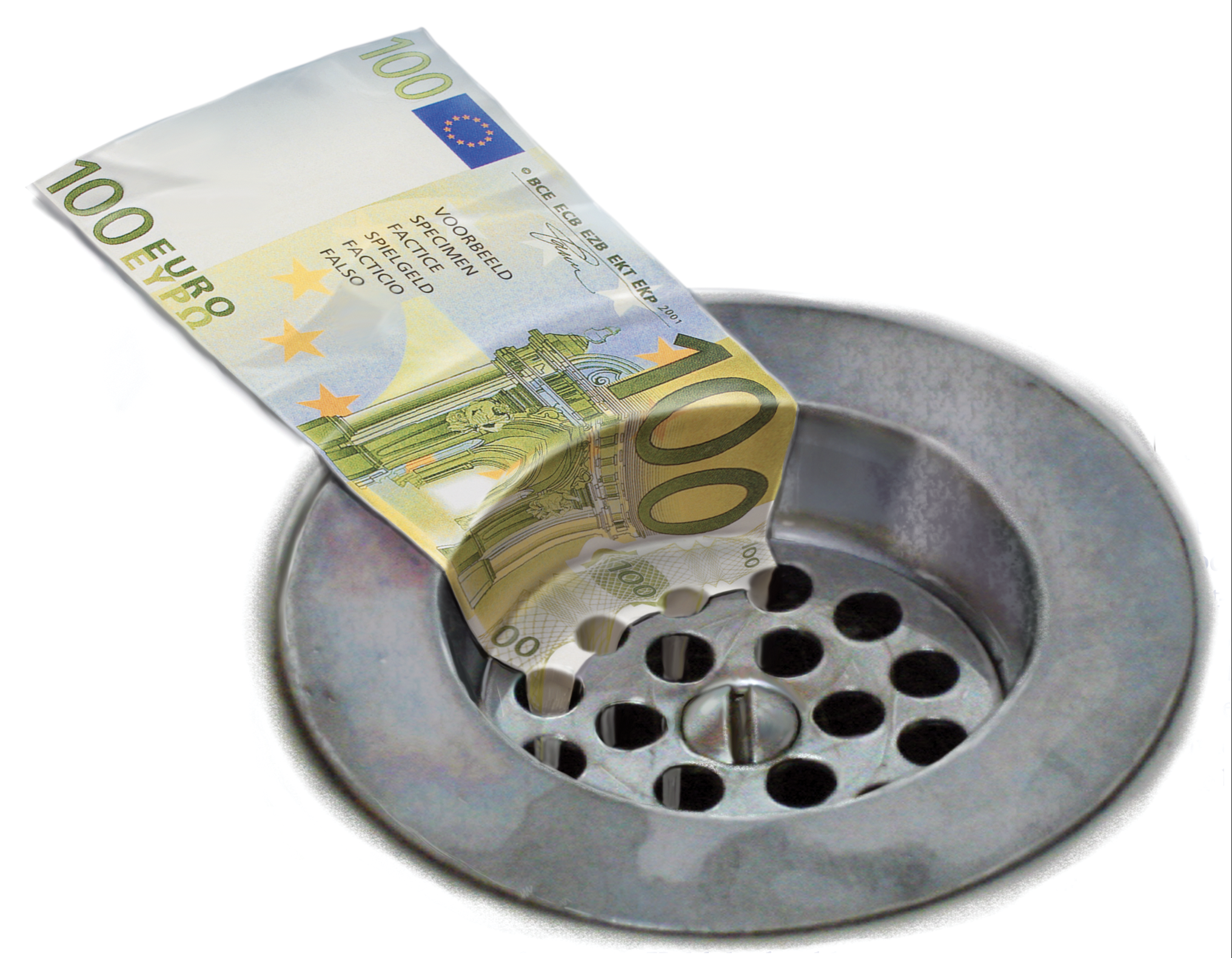“As of this evening,” said Pierre Moscovici in Luxembourg in June, “the Greek crisis is over.” Moscovici, a French Socialist politician who serves as the economics commissioner of the European Union, was making quite a claim. At the turn of the century, Greece was the weakest and most corrupt of the countries to join the euro, the currency of most E.U. member states. When the American subprime meltdown resulted in tightened credit markets 10 years ago, Greece’s entire economic system collapsed, threatening to take other European countries down with it. The episode revealed flaws not just in the way Greece’s government had run its economy but in the design of the euro itself.
The single currency had already undermined Greece’s prosperity, albeit while making Greeks feel rich. The ability to borrow at rock-bottom interest rates more suitable to venerable corporations in Stuttgart had brought inflationary pressures. Greece’s manufacturing and export sectors had lost their competitiveness, with a couple of exceptions, like olive oil. The country’s economy was reduced to tourism and real-estate speculation. Once the crisis hit, an E.U. plan to rescue “Greece”—by which was meant the Western European banks that did business there—destroyed the Greek economy altogether.
A currency of one’s own is a great thing to have in a crisis; a country can regain competitiveness by devaluing it. Lacking one, Greece was at the mercy of eurozone authorities in Brussels and the International Monetary Fund. Together they imposed a plan to strip government benefits, cut wages, and sell off assets. The Greek government sold the fabled Athenian port of Piraeus to the China COSCO Holdings Company and Thessaloniki’s port to a Russian tobacco oligarch who made the newspapers in March when he protested a referee’s call that went against the Greek soccer team he owns by descending onto the field with a gun. The internationally imposed austerity led, as a majority of economists had warned it would, to a dramatic shrinkage of Greek GDP. Greece handed over precious assets and wrecked institutions of long standing . . . and wound up owing more. Its debt-to-GDP ratio did not fall but rose, from 127 percent at the start of the crisis in 2009 to 172 percent two years later. Then Greece paid with its democracy. In November 2011, just as those numbers came out, the country’s prime minister, George Papandreou, announced a referendum on the E.U. austerity measures. German chancellor Angela Merkel and French president Nicolas Sarkozy summoned Papandreou to Cannes to warn that they would shut off funds to Greece should he do so. He resigned.
Today, despite what Pierre Moscovici and his colleagues said in Luxembourg, Greek debt, at 179 percent, is higher still. The latest E.U. deal requires Greece to run large budget surpluses until the year 2060 to repay the debts brought on by the E.U.’s own mismanagement. The country is in some respects worse off than it was when Greek protesters mobbed the parliament in May 2010, howling, “Let the whorehouse burn!”
There is a profound mystery about the euro, according to the Princeton economist Ashoka Mody. “Why,” he asks in EuroTragedy: A Drama in Nine Acts, his authoritative new history of the currency, “did Europeans attempt such a venture that carried no obvious benefits but came with huge risks?” There is an answer to this: Often what economists call risks politicians see as opportunities.
Germany has been the main actor in this story since the euro was conceived a half-century ago. Back then, the country’s neighbors, above all France, resented the strong German currency, the deutsche mark, and the devaluations into which Germany’s more productive and disciplined economy so often forced them. But Germany, too, had an interest in unifying Europe economically. The resolution of the Second World War had deprived it of many of the attributes of national sovereignty—and this gave it an interest in weakening the sovereignty of its neighbors. It’s funny: “European unity” was a project that advanced because a lot of parochial politicians hoped to pull a fast one on their rivals in other countries.
Mody parts ways with David Marsh’s 2009 book The Euro, which up till now has been the standard reference. Marsh, a British journalist who for many years covered Germany’s Bundesbank, defends the euro and the Germans. He paints the early political champions of the common currency, German chancellor Helmut Schmidt and French president Valéry Giscard d’Estaing, as macroeconomic sophisticates who bequeathed a seaworthy vessel to their less money-minded successors, Helmut Kohl and François Mitterrand. In particular, Schmidt was attuned to the threat of American macroeconomic irresponsibility, recalling how Lyndon Johnson’s attempts to simultaneously build out a welfare state and rescue Vietnam inflicted inflation on European economies. In Marsh’s telling, the euro was almost an act of transatlantic self-defense.
For Mody, who represented the IMF in its program to rescue the Irish financial system a decade ago, the euro was an “economic absurdity” from the start. Germany is the villain, although of a strange kind—the villain of something it had to be dragged kicking and screaming into doing. Words in a German’s mouth mean different things than they do in the mouths of others. When most Europeans talk of “banking union,” they mean the Europe-wide pooling of liability in order to lower risk. When a German says “banking union,” he means having German accountants lay down the law to banks in Greece. “We as Germans do not want to pay into a big pot,” says Germany’s former finance minister Peer Steinbrück, as if it were an aesthetic matter.

The strange thing about the euro is that it is an incomplete currency. “Germany plays the role of a hegemon in Europe,” Mody writes, “but is unwilling to bear the cost of being a hegemon.” What he means is that countries that share the euro do not share a fiscal policy. Fans of the euro often claim that the American dollar, too, is “shared” between states. But really the two systems have nothing in common. The United States is in every respect a single economy. Its states are not really sovereign. It has a single banking system. It does not (yet) have any language barriers that would preclude workers from moving from one place to another. It has “automatic stabilizers”—constant transfer payments that moderate economic imbalances. For instance, if Ohio is booming while Florida is stagnating, the former will pay out more in taxes while the latter will receive more in unemployment benefits. The E.U. has none of these advantages.
Mody explains the arguments of those economists who were most perspicacious about the design flaws of the euro. They are a heterodox lot. There is Maurice Obstfeld of Berkeley, who early saw that, in Mody’s words, “the eurozone’s financial framework encouraged investors to lend cheaply to governments with shaky public finances.” Forgetting that not everyone is equally creditworthy is the great common thread that runs through the American (subprime) and the European (euro) crises.
And Mody credits Alan Walters, an adviser to British prime minister Margaret Thatcher, for seeing in 1986 that a fixed exchange regime such as the champions of the euro envisioned would amplify credit booms by sucking money into those countries where inflation was high and productivity falling.
The most farsighted hero among Mody’s forebears is Nicholas Kaldor, the Anglo-Hungarian economist. In March 1971, as the first dreams of Europe-wide money were being sketched out at conferences, Kaldor warned not only that such a currency would be economically inefficient but that it would undermine the political unity it was intended to promote. If there is a diversity of economies in the group, then the currency will be overvalued for some and undervalued for others. Without stabilizers and transfers, pressure will build up. Strong countries will receive stimulus overheat while weak ones will go into debt deflation and their economies will grind to a halt. That is mostly what happened in the European countries this century. Italy entered the E.U. with debts totaling 120 percent of GDP. That alone was a parameter that would render it less creditworthy and lead to imbalances. At the turn of the century, Italy was the world’s leading exporter of home appliances, making about 10 million refrigerators in 2001. By 2013 it was down to 2 million. Italian incomes, which had on average been 91 percent of German ones in 2007, had fallen to 77 percent in 2014.
Forcing different peoples to live together in a confederation is hard to do. Even with political good faith and vast resources, it may yet fail. Yugoslavia failed, Czechoslovakia failed, and it is only with great difficulty and much transferring of money that Italy, after a century and a half, still holds its northern cities and its southern provinces in one political unit. What made the Europeans so arrogantly believe they could execute a union of 28 nations where other, more modest projects had failed?

The euro was a big part of the answer. It was intended to serve not as an economic amulet but as a political trick. European leaders provoke crises and emergencies that they use to seize power from democratic electorates. That has always been their preferred model of continental consolidation. Jean Monnet, one of the E.U.’s founding fathers, was quite open about it. “I have always believed,” he wrote in his memoirs, “that Europe would be built through crises, and that it would be the sum of their solutions.”
Speaking to Die Zeit in late June, two of the German architects of the euro, former finance minister Theo Waigel and former head of the finance ministry’s Europe division Klaus Regling, alluded to the lack of a Europe-wide bailout fund as a Konstruktionsfehler, or “design mistake.” If so, it is a design mistake that offers extraordinary political advantages to those guilty of the misdesign. The single currency is doomed to failure on every front except one—it is devilishly difficult and risky to dismantle. As long as the euro survives, its designers will hold onto the hope of provoking a crisis that forces European unity on recalcitrant nation-states, that achieves what Mody calls “fiscal union by the back door.”
Mody often makes clear that he would applaud a European Union that was agreed on by the front door. Perhaps it adds to the credibility of his economic opinions that his political opinions are so very conventional. But to the extent he believes the euro is an aberration, a mismanaged exception to a generally noble European project, he is wrong. The euro is imbued with the ethics of the E.U.
“If the euro fails,” Angela Merkel warned the Bundestag in 2010, “Europe fails.” But in this construction, is the euro a cause or an effect? Did it drive the various members of the E.U. into trouble and decline? Or is it the kind of folly to which troubled and declining peoples are susceptible? It is both. Having devoted their lives and their sacred honor to the common currency, the leaders of the European Union have come to think of themselves as the continent’s Jeffersons, its Madisons, its Lincolns. They are unlikely to be convinced by an alternative narrative, no matter how well argued, that paints them as its Quislings.
During the acute phase of the euro crisis in 2010, the German philosopher Jürgen Habermas exhorted Angela Merkel to be a true leader, one who “took domestic political risks for Europe.” Did he not see that European leaders were already taking the craziest risks for Europe, or at least in the name of Europe, and that they might actually be its problem? Or did he, too, forget that politics concerns not just those who take risks but also those who bear them?
